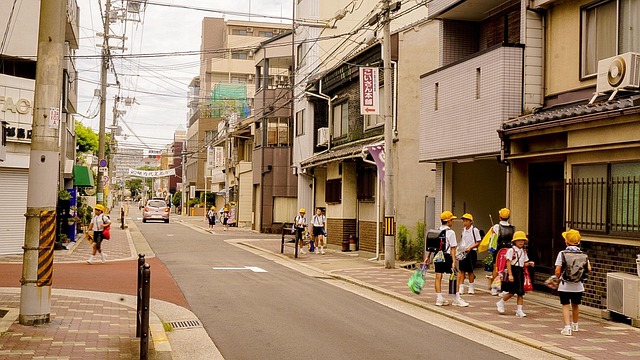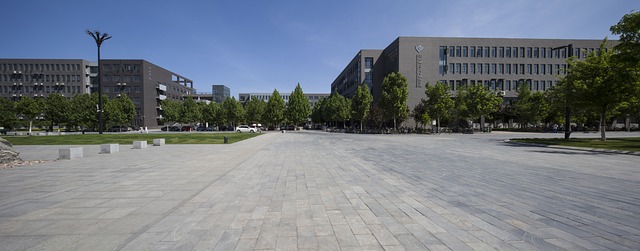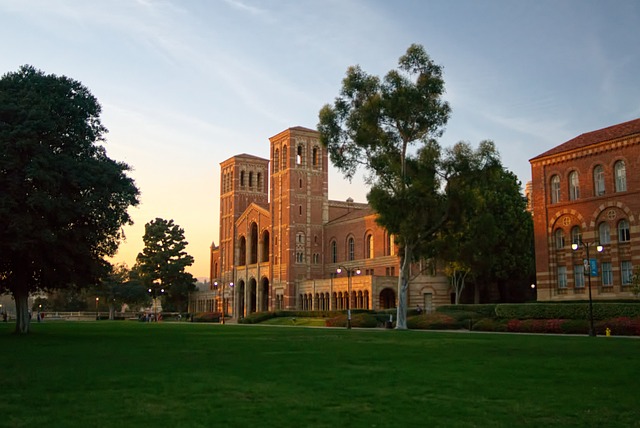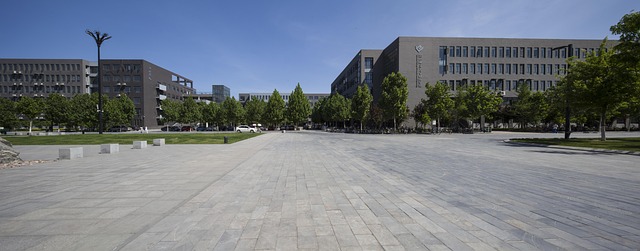Before searching for off-campus student housing, conduct thorough research on potential neighborhoods using online news, social media, and community insights. Focus on safety, accessibility, proximity to campus and amenities like grocery stores and entertainment. Prioritize secure entry systems, well-maintained buildings, and convenient distances from essential services for a safe and satisfying accommodation experience.
Finding the perfect off-campus apartment can be a daunting task for students, but with some smart strategies, it becomes manageable. This guide offers essential tricks and insights tailored to student housing tips. Learn how to navigate your search by researching the neighborhood, budgeting effectively, and identifying key features or red flags in potential apartments. We’ll walk you through the legal and practical steps to securing your ideal home away from home, ensuring a smooth transition into independent living.
- Researching Your Off-Campus Neighborhood
- – Understanding the local area
- – Safety and accessibility considerations
- – Community vibe and amenities
Researching Your Off-Campus Neighborhood

Before diving into the apartment search, students should invest time in researching their off-campus neighborhood. Understanding the local area is key to making an informed decision about student housing tips and finding a place that suits your needs and budget. Check online for recent news and developments in the region, as well as any community events or festivals happening during your potential tenancy.
Social media platforms can also offer insights into the daily life of residents. Follow local pages and groups to get a feel for the neighborhood’s vibe, safety levels, and accessibility to campus. This preliminary research will empower students with valuable knowledge about their future home away from home, making it easier to navigate the student housing market effectively.
– Understanding the local area

Before diving into the search for an off-campus apartment, it’s crucial to understand the local area, especially if you’re new to the city. Student housing tips suggest that researching the neighborhood is a top priority. Consider factors like safety, proximity to campus and public transportation, as well as the overall vibe of the area. Look for student-friendly amenities such as nearby grocery stores, cafes, and entertainment options to ensure your off-campus living experience is convenient and enjoyable.
Understanding the local dynamics can also help you avoid common pitfalls. Student housing tips highlight the importance of knowing local rental markets and leasing trends to secure a fair deal. Engage with current residents, check online reviews, and stay informed about any student housing regulations or community events that could impact your living environment. By taking the time to understand your future neighborhood, you’ll be better equipped to find an ideal off-campus apartment that suits your needs and budget.
– Safety and accessibility considerations

When looking for an off-campus apartment, safety and accessibility are paramount in student housing tips. Consider proximity to campus security or emergency services, well-lit paths, and neighborhoods with low crime rates. Check if the building has entry security systems, such as key cards or intercoms, and ensure your potential apartment is within a safe walking distance from classes, libraries, and other essential amenities.
Additionally, assess accessibility features like wheelchair ramps, elevators, and ample parking spaces, especially if you or fellow students have mobility concerns. Student housing tips also encourage examining the building’s maintenance history to avoid issues with repairs and upkeep, ensuring a comfortable and secure living environment.
– Community vibe and amenities

When looking for an off-campus apartment, don’t underestimate the power of community vibe and amenities. Student housing tips suggest that a welcoming atmosphere can significantly enhance your college experience. Consider neighborhoods with a mix of students and locals; this blend offers safety, convenience, and a chance to connect with diverse individuals. Look for properties that provide shared spaces like lounges, courtyards, or study areas—these places foster community building and make socializing easier.
Amenities are another key factor in student housing tips. Think beyond the basics—a secure entrance and on-site maintenance—and look for extra perks like high-speed internet, a fitness center, or even a pool. These can greatly contribute to your overall comfort and satisfaction during your stay. Remember, a positive community vibe and well-equipped amenities make transitioning from home to college life smoother and more enjoyable.






